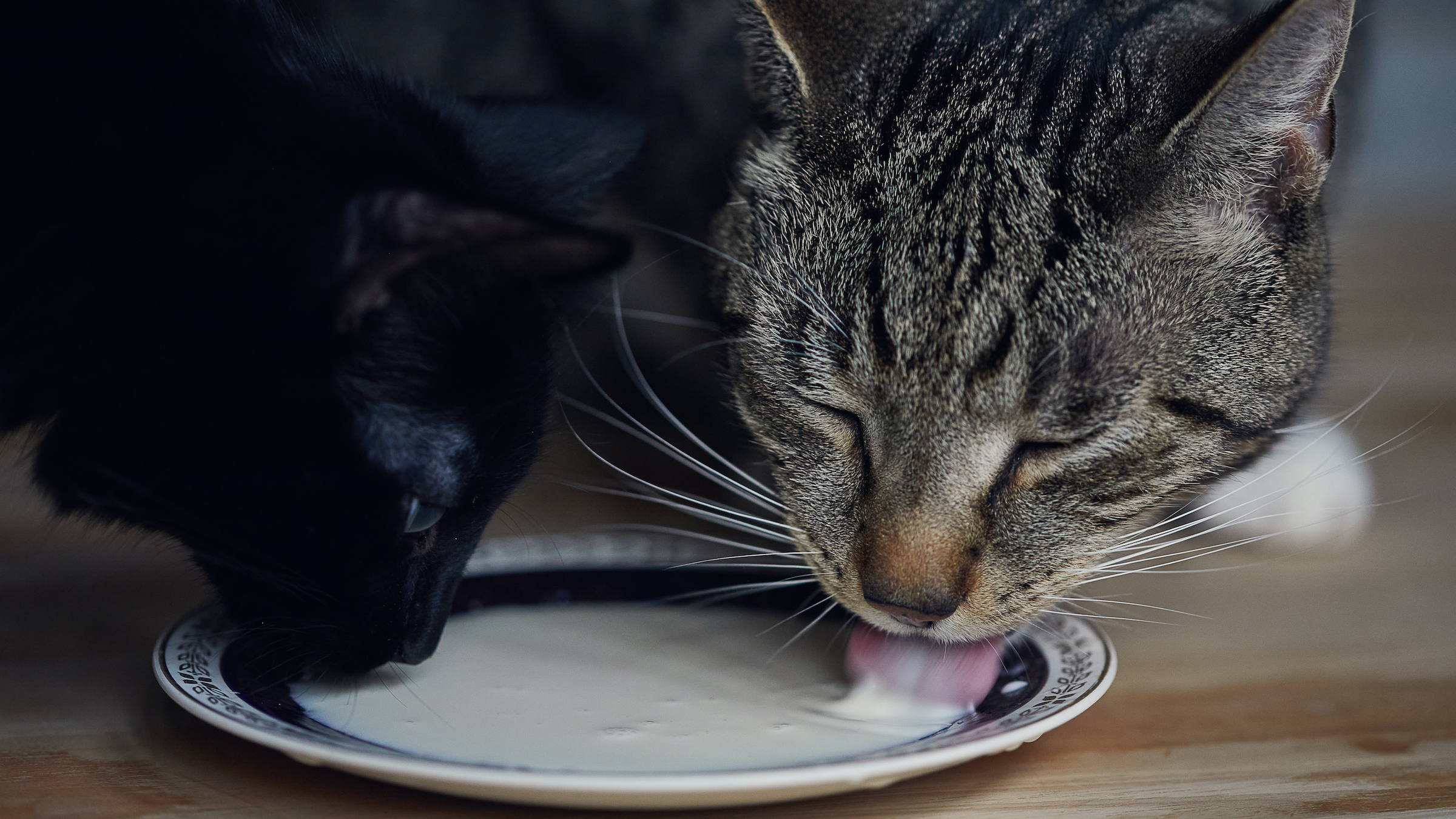Is it safe for cats to drink milk?
What if they want the milk right "meow"?

Get the world’s most fascinating discoveries delivered straight to your inbox.
You are now subscribed
Your newsletter sign-up was successful
Want to add more newsletters?

Delivered Daily
Daily Newsletter
Sign up for the latest discoveries, groundbreaking research and fascinating breakthroughs that impact you and the wider world direct to your inbox.

Once a week
Life's Little Mysteries
Feed your curiosity with an exclusive mystery every week, solved with science and delivered direct to your inbox before it's seen anywhere else.

Once a week
How It Works
Sign up to our free science & technology newsletter for your weekly fix of fascinating articles, quick quizzes, amazing images, and more

Delivered daily
Space.com Newsletter
Breaking space news, the latest updates on rocket launches, skywatching events and more!

Once a month
Watch This Space
Sign up to our monthly entertainment newsletter to keep up with all our coverage of the latest sci-fi and space movies, tv shows, games and books.

Once a week
Night Sky This Week
Discover this week's must-see night sky events, moon phases, and stunning astrophotos. Sign up for our skywatching newsletter and explore the universe with us!
Join the club
Get full access to premium articles, exclusive features and a growing list of member rewards.
Cats are commonly shown lapping milk from saucers. But can they safely drink milk?
The popular image of cats drinking milk may have emerged during the 19th century, when cats and dogs became popular subjects for artists. As the Industrial Revolution progressed and more people migrated to cities, the number of cat and dog owners grew, and artists were increasingly called on to paint charming works of pets. As such, French artist Alfred-Arthur Brunel de Neuville often drew cats drinking from bowls of milk, and his work proved very popular during his lifetime, according to Rehs Galleries in New York City.
However, giving milk to adult cats might actually do more harm than good to them, according to Britain's leading veterinary charity, the People's Dispensary for Sick Animals. Cats often lose their tolerance for lactose, the sugar found in milk, when they get older, just as most humans do.
"For most cats, the ability to digest lactose declines after weaning," Nathalie Dowgray, head of the International Society of Feline Medicine in the United Kingdom, told Live Science. "As a result, milk can cause digestive issues in cats and lead to symptoms such as diarrhea or vomiting."
Related: Is it safe to feed cats and dogs a vegetarian diet?
Some cats may keep the ability to digest lactose into adulthood, just as some people do, Dowgray noted. Still, "there are no additional nutritional benefits to giving your cat cow's milk if they are fed a high-quality complete and balanced cat food," she said.
In addition, cow's milk is full of fat. A saucer of milk for a cat "is like you eating an entire 12-inch pizza," the People's Dispensary for Sick Animals noted. As such, cow's milk can lead a cat to become overweight, Dowgray said.
Get the world’s most fascinating discoveries delivered straight to your inbox.
Moreover, "cow's milk contains high levels of phosphate," Dowgray said. This means it is best for cats to avoid it if they have been diagnosed with kidney disease, she noted. Phosphorus can impair kidney health in cats with chronic kidney disease, according to a 2017 study in the Journal of Feline Medicine and Surgery.
Cats may still crave milk despite the problems it causes because they may connect it with positive memories from their time as kittens, according to Hastings Veterinary Hospital in Burnaby, British Columbia. They may also simply like the taste of the fat in it, the People's Dispensary for Sick Animals noted.
Kittens do normally drink their mother's milk until they are fully weaned, at a few months old. Kittens that require hand-rearing, in situations such as illness or the loss of their mothers, "should be fed a carefully formulated kitten milk replacer that meets their nutritional requirements," Dowgray said.
Other types of milk, such as cow's or goat's milk, are not suitable replacements for cat milk, as they don't contain enough protein or fat to meet a kitten's needs for growth and development, Dowgray said. Veterinarians can recommend high-quality kitten milk replacers that are safe and correctly formulated for kittens, she noted.
"Weaning onto solid foods should begin at three to four weeks of age and should take place gradually until the kittens are able to accept a complete diet of solid food," Dowgray said.
Special milks for cats are sometimes marketed in supermarkets and pet stores. "Instead of purchasing milk products for cats, which offer no additional nutritional value, we would recommend that owners focus on making sure their cats have access to plenty of fresh clean water every day," Dowgray said.

 Live Science Plus
Live Science Plus











